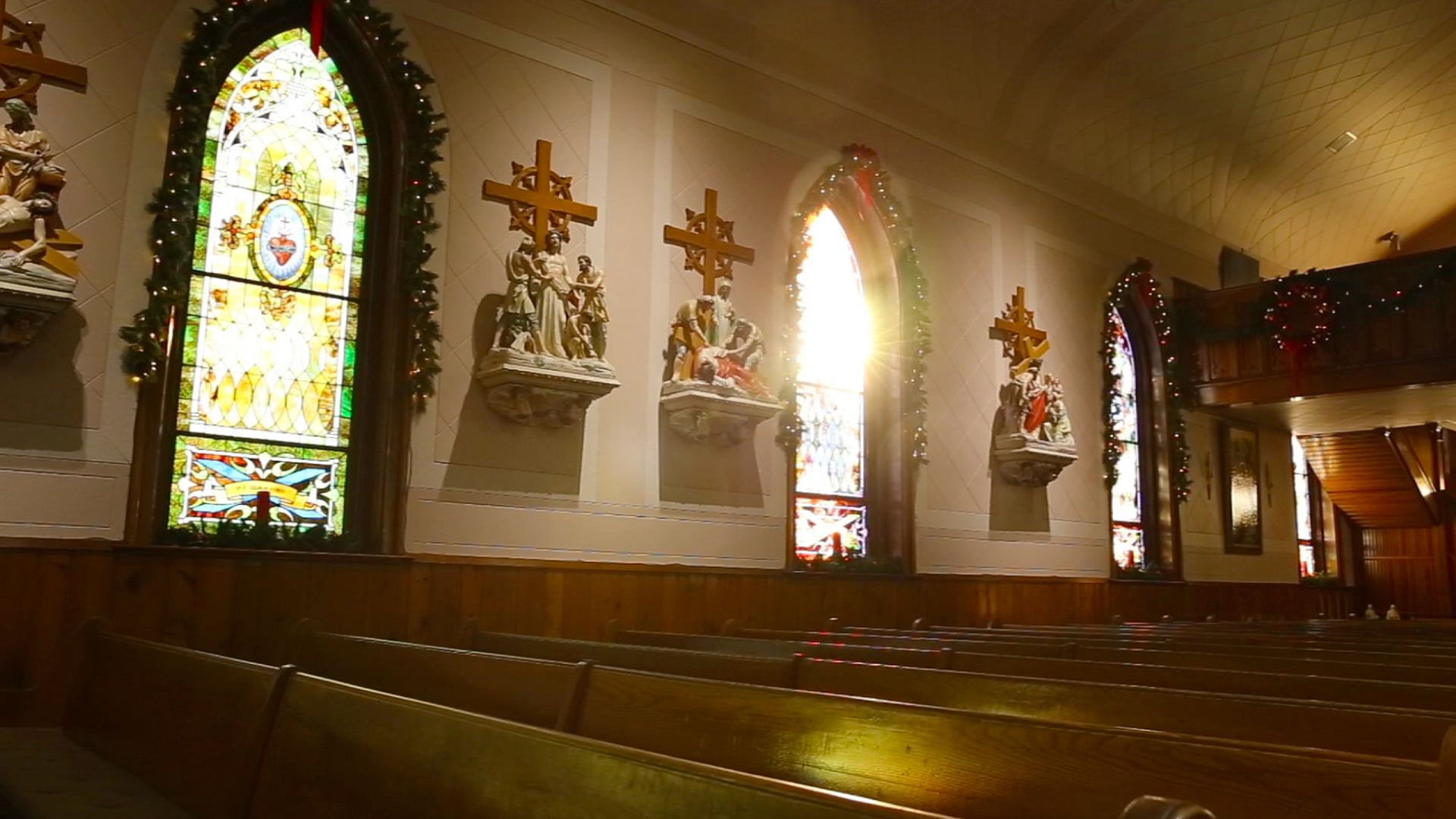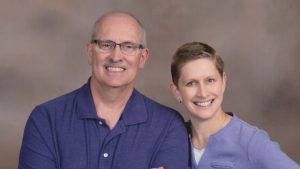
“There are three openings on the parish and finance councils.”
You’ve read words like these in your parish bulletin before, but you’ve never considered it. You tell yourself you don’t have the skills, you don’t have the time, and someone else will surely do it. It’s a common response, but not an accurate reflection of reality.
Fear and apathy drive many of us to dismiss a request like this without ever really discerning whether we are the ones who should volunteer. It might actually be the perfect opportunity for us to be of service to our parish and our pastor.
Challenged to serve
Regardless of which parish he’s been in, large or small, Father Ken Lulf, pastor at Sacred Heart Parish in Eden and St. Joseph Parish in Grenville, has found filling vacancies on councils is not easy.
“My experience is that people’s difficulty isn’t with working with the priest, it’s with the faithful. They are afraid of making a bad decision in the eyes of the people in the pews,” Father Lulf said. “That’s got to change. The more the faithful are engaged, the less time I need to invest in administration and the more I can focus on the spiritual.”
Consistent with the Second Vatican Council’s call for greater participation from lay people in the life of the Church, Father Lulf said we must realize that as the number of priests decline, the response of the faithful will have to increase.

Janet Fischer, parishioner and parish council member at St. Lambert Parish in Sioux Falls, has learned a lot about the workload of a pastor during her four years on the council.
“When you sit in the pews, you don’t think about the work he does during the week,” Janet said. “You know he says Masses, has baptisms and weddings but you don’t see all the different responsibilities he has. Seeing this as a parish council member, I have a greater desire to be on board to help with his workload.”
“As pastor you are CEO, manager and worker bee,” Father Shaun Haggerty, pastor at St. Lambert Parish in Sioux Falls, said. “You’re wearing all these hats; there aren’t a lot of positions out there like that.” He explained that councils are like a board of trustees to advise their pastor.
Father Haggerty says canon law is designed for the pastor to be in charge; he always has the final say, but he needs to work in concert with councils and consider their input. The role of councils is to keep priests in touch with parishioners who may feel more free to talk to a council member than to the priest, or who may feel that the priest is too busy. Importantly, councils maintain unity and continuity in the parish as priests are reassigned.
“Councils help the pastor know more of what’s going on—to get perspective from the pew. Having the support of the council in difficulty allows the pastor to be more confident in decisions,” Father Haggerty said.
A highlight for him was how his parish council handled Covid. “We were very united as a council in a time of division. On the other side, the finance council helped the parish stay stable when the church was closed and attendance was down.”
Father Lulf points out another benefit of councils: sharing the history and understanding of the parish with the pastor.
“I’ve been here since July 1. I don’t know anything about the parish, but there are people who have lived here their whole life who do,“ Father Lulf said. “I can’t figure it out—they’ve got to tell me, because I don’t know what I don’t know.”
Councils help guide parishes
Janet describes the parish council as primarily an advisory board. “We discuss programs, ministries (such as lectors, servers, greeters), religious ed, activities, plan events, security…anything the pastor needs to bounce off other people we talk about at meetings. We’re representing the parish which has certain gifts. Father Haggerty is the steward of the entire parish, of all the time and talent of the staff and volunteer leaders of the parish and organizations. We help him guide all these groups.”

Mona Buisker, finance council member and parishioner at St. John de Britto Parish in Britton, explained the role of the council she serves as guiding the parish with finances and being there to guide the priest, whose input and guidance the council also needs and wants. Parishioners can bring questions, concerns and suggestions to the council members who meet quarterly to review and discuss financials.
“We are there to give our guidance to the priest who has the final say,” Mona said. “We start and end every meeting with prayer and every decision we make is with the best interest of the parish in mind. We have to ask ourselves, ‘Are we doing this per God’s plan? If God could tell us, what would he say?’”
Father Lulf said councils are collaborative and a good pastor will take what a council recommends, infrequently going against it. “It’s not what I think,” he said, “it’s what we think, and guided by the Holy Spirit, we make those decisions for the good of the Body of Christ.”
Father Lulf emphasized collaboration, recalling affirmation from a finance council member who told him after six years, “Father, you made us a lot smarter. You gave us permission to look at the information and comment.”
With service arises growth
As terms expire, Father Haggerty prays about replacements. He brings names to the council and asks who they have in mind. “I go ask people after a lot of thinking and prayer,” he said, adding that he’s seldom turned down. Janet serves because Father Haggerty did a personal ask.
Father Haggerty encourages council members to develop their prayer life. Book study to provide spiritual guidance and faith development is part of council meetings.
“Not all councils do this, but it is a unique part of our council that our pastor chose to do, and we’ve been receptive,” Janet said. “It’s been very positive.”
“If you have people who know and love the faith, who know and love the Church, they are going to have the mind of the priest,” Father Haggerty said. “They will want the success of the church.”
It may not be clear how serving on a council is missionary discipleship, but Janet says it definitely is. Youth and adult ed and increasing the faith and spiritual life of the parishioners is part of their discussion. Since the rollout, the diocesan vision is discussed at every meeting with the goal of discovering more ways to promote it. Members attend educational programs and hold programs to encourage and educate parishioners in the vision.
Mona thinks of everything we do in our parish, community, job and family as part of missionary discipleship. “We do have to remind ourselves of that once in a while,” she said.
Encouraging others to serve in their parish, she says there are many different ways you can be active. “Your church wants you there. And it’s fun! You’re missing out on something that will enrich you spiritually,” Mona said. “It might not be easy, but you will be repaid. God will give you the time you need to get your other work done.”
“Being on the council has been very rewarding,” Janet said. “I’ve learned a lot. I would certainly encourage people to be willing to serve. It doesn’t take a lot of time, but it’s a tremendous benefit to the parish.”
If people are looking for a way to fulfill the diocesan vision of Lifelong Catholic Missionary Discipleship Through God’s Love, Father Lulf says serving on a council is an easy way to do it.
“Your parish is your home, take ownership, don’t wait for someone else.”


